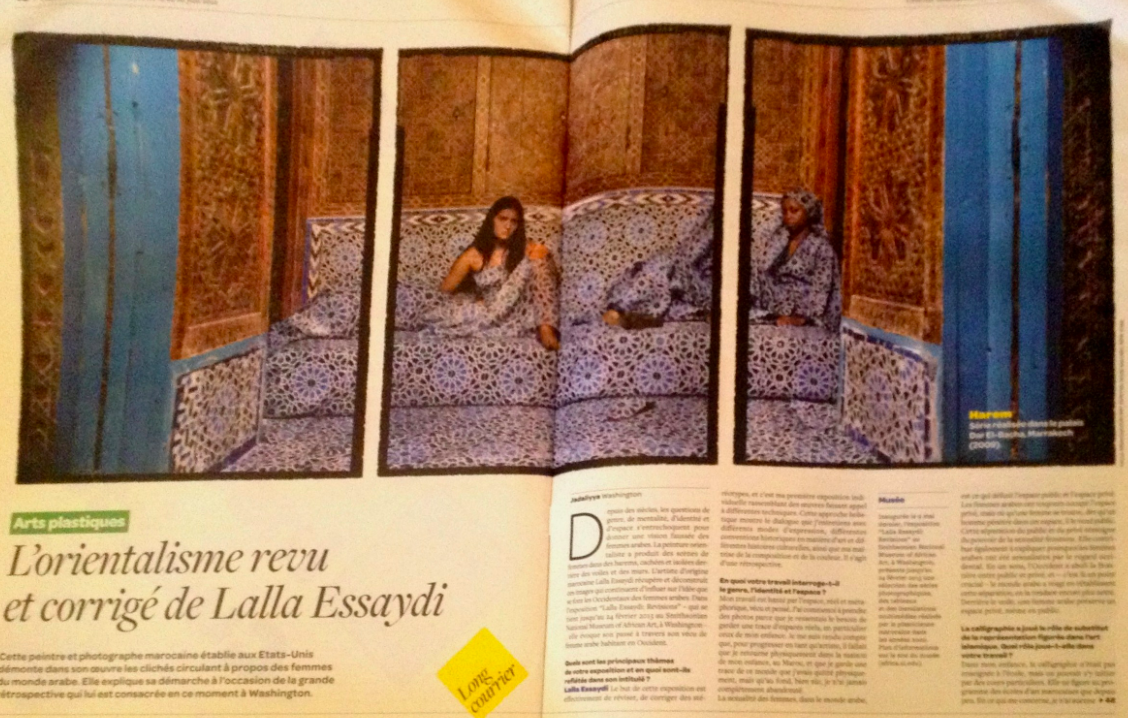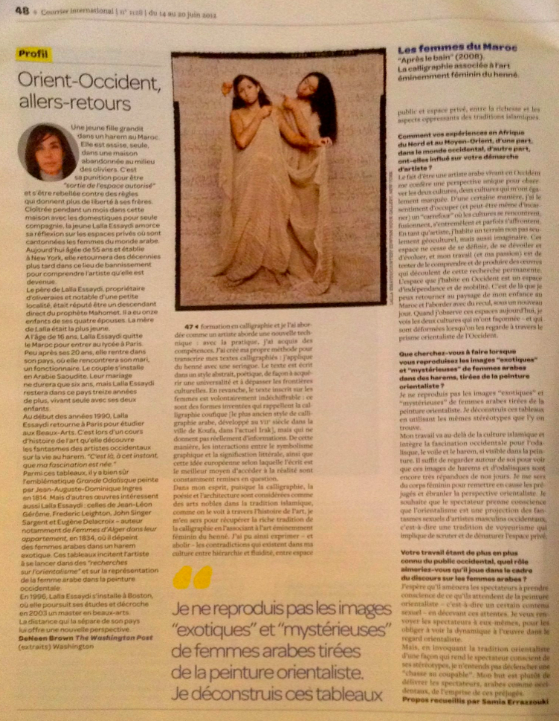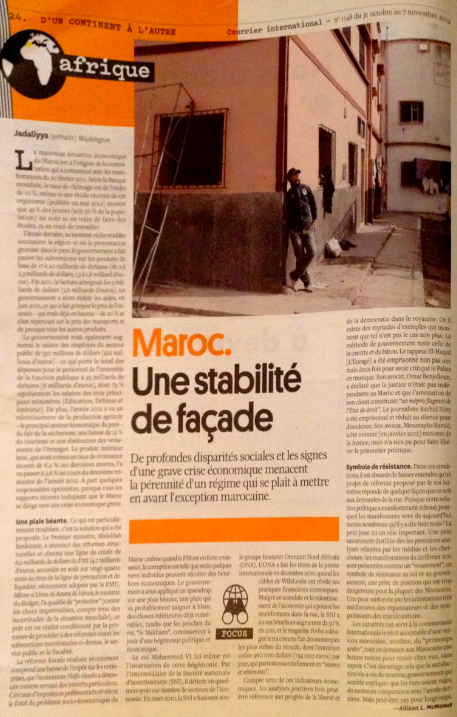Paris-based weekly newspaper, Courrier International, has translated and featured a couple pieces from Jadaliyya`s Maghreb Page. They include an interview with Moroccan-born artist, Lalla Essaydi, conducted by Maghreb Page co-editor, Samia Errazzouki, and an overview of the current situation in Morocco, written by Maghreb Page intern, Allison L. McManus.
Below are snapshots of the French versions as they appear in Courrier International`s print edition.

[Courrier International`s French translation of "Artistic Depictions of Arab Women: An Interview with Artist Lalla Essaydi."]

[Courrier International`s French translation of "Artistic Depictions of Arab Women: An Interview with Artist Lalla Essaydi."]

[Courrier International`s French translation of `"Arab Spring,` Moroccan Winter."]